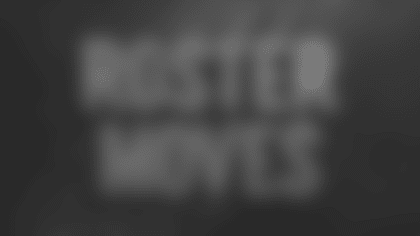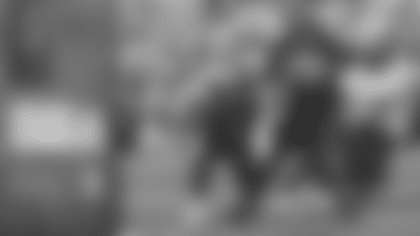CHARLOTTE — Playing football during a pandemic is an unprecedented situation, but there are some parallels to draw upon from the past.
At least that's how Panthers left tackle Russell Okung sees the situation. Heading into his 11th season, he's one of just three players on the roster — including kicker Graham Gano and long snapper JJ Jansen — who experienced the 2011 lockout.
"I know what it's like to not have OTAs, not have minicamp, and then all of a sudden be expected to show up for camp and be ready to go," Okung said. "I think we've proved that we can go out there and put a good product on the field."
Okung was a Seahawks' first-round pick in 2010 and was entering his second pro season when the lockout occurred. One lesson from back then is players need time to ramp up training to prevent serious ailments. The league saw an increase in Achilles and ACL injuries early in the 2011 season, which is why the NFL Players' Association continued to push for a considerable strength and conditioning period to begin training camps this year.

Okung also has concerns about COVID-19, much like anyone who understands the situation's seriousness. But he believes there will be a good plan to keep players, coaches, and staff as safe as possible.
Plus, Okung has added supplements like vitamin A, vitamin B, and zinc to his diet to give himself a boost. He's drinking a lot of water. He's also spending a lot of time in the sun, calling it "one of our most incredible healers." And he's eating as clean as possible, trying to avoid any GMO products.
"Stuff like that is really important for us to pay attention to," Okung said. "I've just got to be honest with you, man, I feel great."
Okung's meticulousness about what he puts into his body falls right in line with how offensive line coach Pat Meyer described the left tackle as a player. Meyer was Okung's position coach for the last three seasons with the Chargers, helping Okung earn the second Pro Bowl berth of his career in 2017.
"He's got a book of 50 different guys that have pass rushed him before. He keeps a book on each of these guys (that says), here's his No. 1 move, here's what he likes, here's his go-to move. He's got a catalog of all that stuff," Meyer said. "Just the approach to the game in terms of trying to take care of your body, and then your approach to every game and every week preparing like he does, I think that's a huge, huge thing."
As for those lessons from the 2011 lockout, one significant difference in 2020 is players learned the playbook during this spring's virtual meetings. That didn't happen nine years ago, and it should have a positive effect on implementing Carolina's new systems during training camp.
"Most teams I've been on, we've probably installed the playbook at least two to three times prior to us starting the season. And we've done it twice already," Okung said. "I imagine we'll do it another two times when we get to camp — or at least one time. So we're right on pace for that."
Okung also credited head coach Matt Rhule for starting to establish a distinct culture, despite having to communicate over a computer or tablet. Okung called culture "one of the most fundamental components" to any successful team, and noted Rhule spent a lot of time talking about it.
"I think that's something that's a high priority of his," Okung said.
Culture and connectedness are of particular importance along the offensive line. If that unit is not together, the offense as a whole can't function properly. Okung has played with center Matt Paradis and guard Michael Schofield before and knows them well. Now, Okung has to establish relationships with his younger teammates.

"A lot of the stuff is on a personal level. I won't understand you until I know who you are and what things are important to you," Okung said. "I think I've had a chance to spend some time with a lot of those guys, at least virtually. I know some of them have kids and people they care about. So I think honestly, the football stuff will take care of itself."
But what does Okung see as the most important lessons from 2011 that can aid the Panthers in 2020? Building continuity and camaraderie will be challenging, but that's also the case for the other 31 teams.
"I think our best bet is to, one, make sure we're ready and mentally prepared," Okung said. "Physically, I think we've all been challenging ourselves to get as close to shape as possible — and some of us know each other across the offensive line, so we know how to prepare. We know what it takes there. Then it becomes a matter of sticking to getting together and being prepared to go."
Okung previously played for Chargers (2017-19), Broncos (2016) and Seahawks (2010-15).
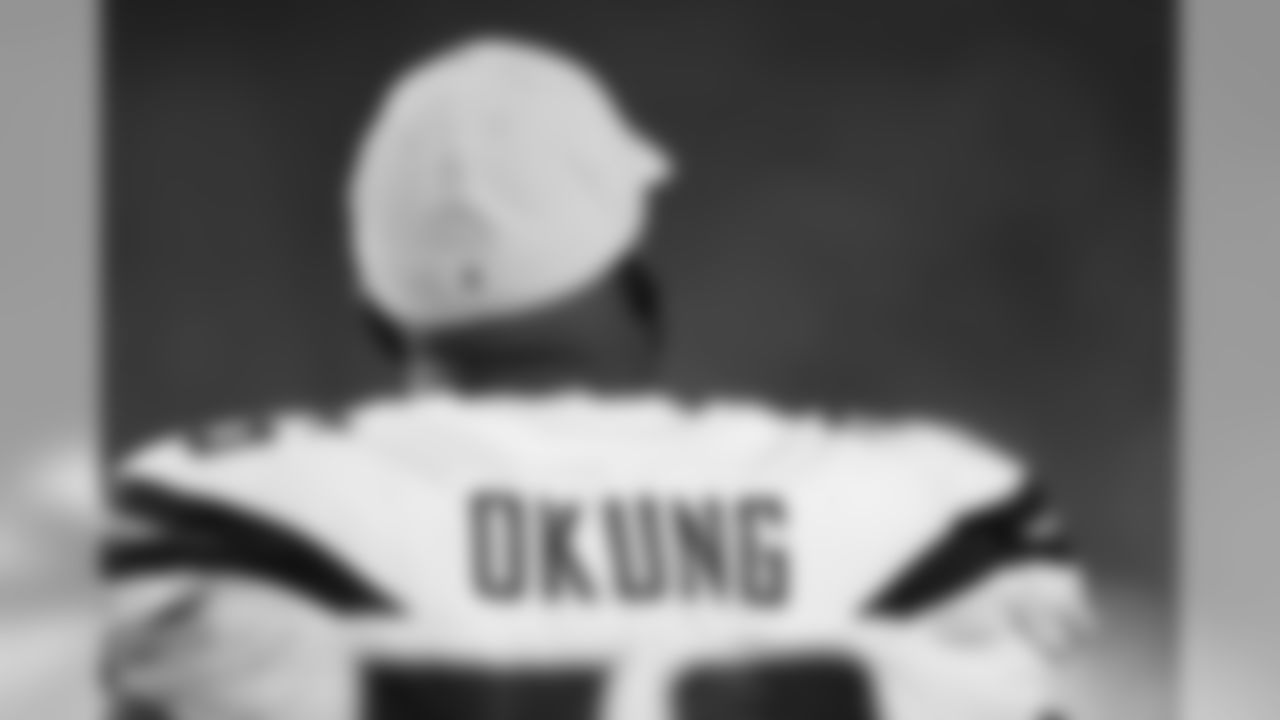
Los Angeles Chargers offensive tackle Russell Okung (76) seen on the bench during an NFL preseason football game against the Arizona Cardinals on Saturday, Aug. 11, 2018 in Glendale, Ariz. Arizona won 24-17. (Aaron M. Sprecher via AP)

Los Angeles Chargers offensive tackle Russell Okung (76) gets set during the 2018 regular season week 1 NFL football game against the Kansas City Chiefs on Sunday, Sept. 9, 2018 in Carson, Calif. The Chiefs won the game 38-28. (Paul Spinelli via AP)

Los Angeles Chargers offensive tackle Russell Okung (76) celebrates after an NFL football game against the Kansas City Chiefs on Thursday, Dec. 13, 2018, in Kansas City, Mo. The Chargers defeated the Chiefs, 29-28. (Ryan Kang via AP)

Los Angeles Chargers offensive tackle Russell Okung (76) looks up from the sideline with his helmet off during a NFL football game against the Cincinnati Bengals, Sunday, Dec. 9, 2018 in Carson, Calif. The Chargers won the game 26-21. (Paul Jasienski via AP)

Los Angeles Chargers offensive lineman Russell Okung (76) jogs to the sideline during a regular season Week 17 NFL football game between the Los Angeles Chargers and the Denver Broncos in Denver on Sunday, Dec. 30, 2018. The Chargers beat the Broncos 23-9. (Matt Patterson via AP)

Los Angeles Chargers offensive lineman Russell Okung (76) looks to block against Ravens linebacker Matthew Judon (99) during a NFL Wild Card Playoff football game between the Los Angeles Chargers and the Baltimore Ravens in Baltimore on Sunday, Jan. 6, 2019. The Chargers beat the Ravens 23-17. (Matt Patterson via AP)
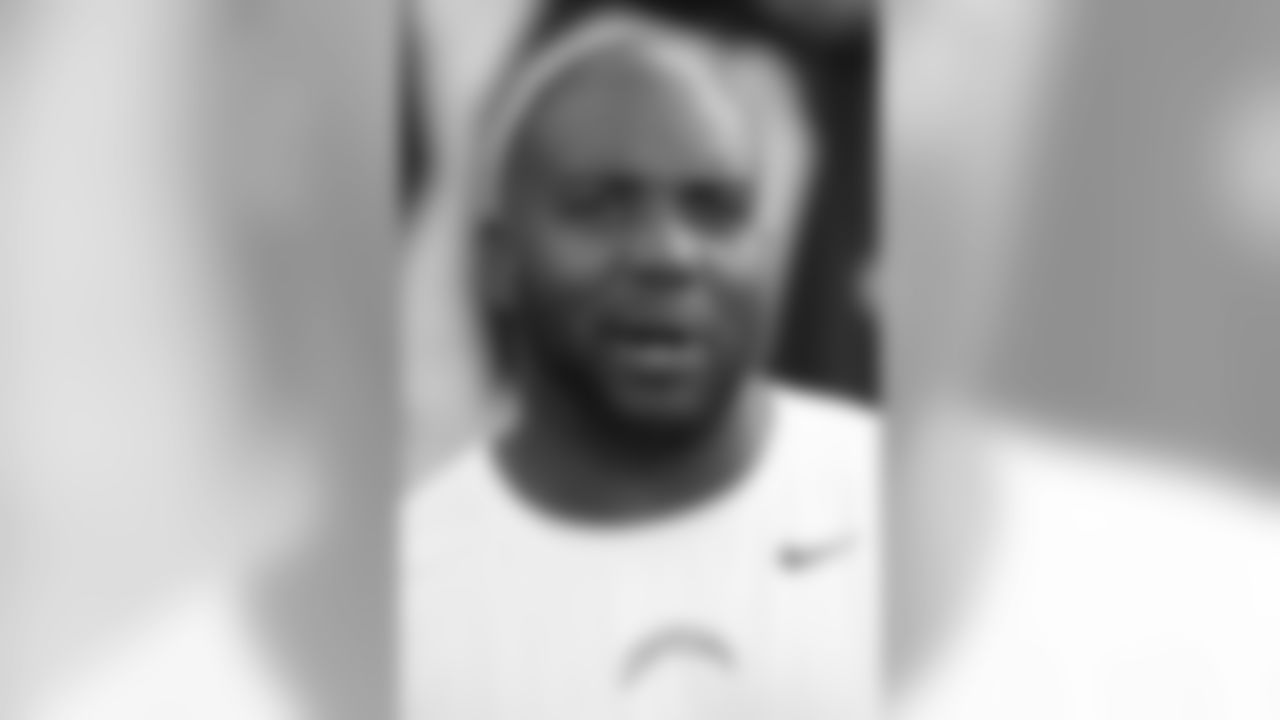
Los Angeles Chargers offensive tackle Russell Okung (76) looks on during an NFL football preseason game against the Seattle Seahawks, Saturday, Aug. 24, 2019 in Carson, Calif. The Seahawks defeated the Chargers 23-15. (Paul Spinelli via AP)

FILE - In this Dec. 2, 2018, file photo, Los Angeles Chargers offensive tackle Russell Okung (76) plays against the Pittsburgh Steelers in an NFL football game in Pittsburgh. Okung took part in his first practice since June 1, 2019, when he suffered a pulmonary embolism during an offseason workout at the team facility. He is being treated for blood clots and has been on the non-football injury list. (AP Photo/Don Wright, File)

Los Angeles Chargers tackle Russell Okung (76) blocks during an NFL football game against the Chicago Bears, Sunday, Oct. 27, 2019, in Chicago. The Chargers defeated the Bears, 17-16. (Ryan Kang via AP)

Green Bay Packers outside linebacker Preston Smith (91) runs around the edge as Los Angeles Chargers offensive tackle Russell Okung (76) blocks during an NFL football game, Sunday, Nov. 3, 2019 in Carson, Calif. Los Angeles won 26-11. (Peter Read Miller via AP)

Green Bay Packers outside linebacker Za'Darius Smith (55) runs around the edge as Los Angeles Chargers offensive tackle Russell Okung (76) blocks during an NFL football game, Sunday, Nov. 3, 2019 in Carson, Calif. Los Angeles won 26-11. (Peter Read Miller via AP)

Los Angeles Chargers offensive tackle Russell Okung (76) blocks during an NFL football game against the Oakland Raiders, Thursday, Nov. 7, 2019, in Oakland, Calif. Oakland won 26-24. (Aaron M. Sprecher via AP)

Los Angeles Chargers offensive tackle Russell Okung (76) shakes hands with a child on the field after the coin toss before an NFL football game against the Jacksonville Jaguars Sunday, Dec. 8, 2019, in Jacksonville, Fla. (AP Photo/Phelan M. Ebenhack)

Los Angeles Chargers offensive tackle Russell Okung (76) works against Jacksonville Jaguars defensive end Calais Campbell (93) during the first half of an NFL football game Sunday, Dec. 8, 2019, in Jacksonville, Fla. (AP Photo/Phelan M. Ebenhack)
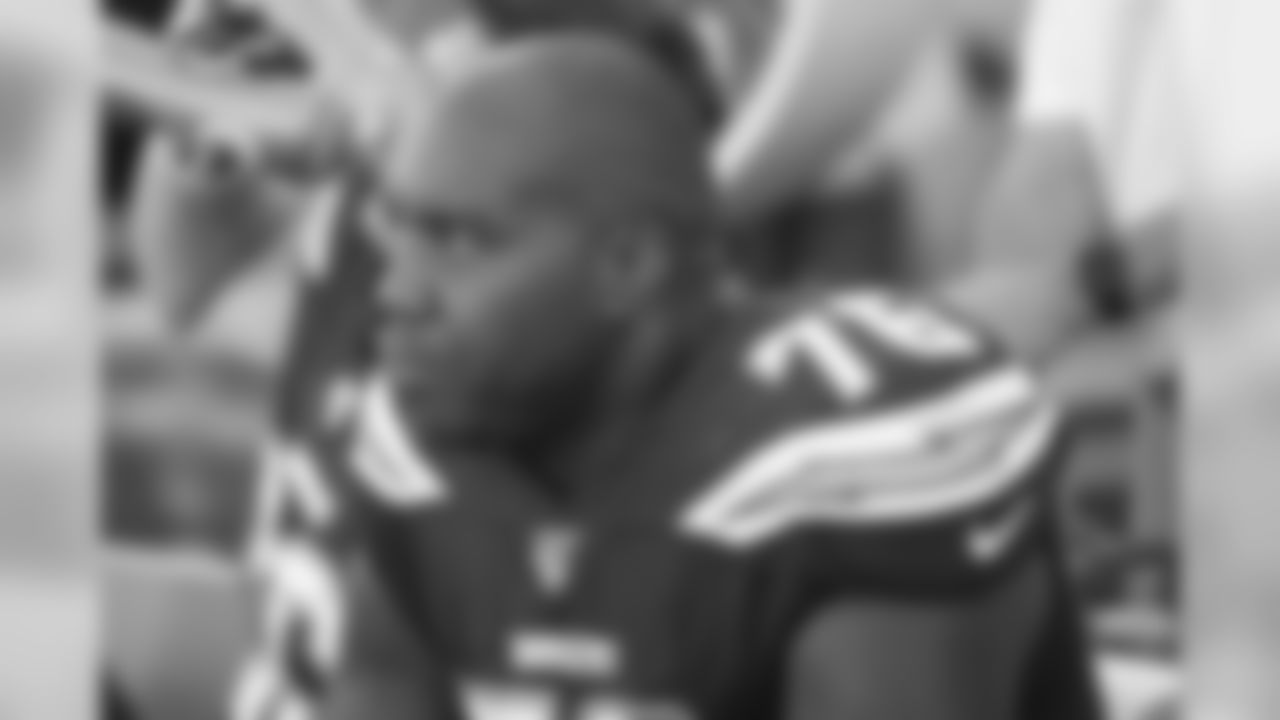
Los Angeles Chargers offensive tackle Russell Okung (76) looks on from the sideline bench during an NFL football game against the Green Bay Packers, Sunday, Nov. 3, 2019 in Carson, Calif. The Chargers defeated the Packers 26-11. (Paul Spinelli via AP)

Los Angeles Chargers offensive tackle Russell Okung (76) blocks during an NFL football game against the Green Bay Packers, Sunday, Nov. 3, 2019 in Carson, Calif. The Chargers defeated the Packers 26-11. (Paul Spinelli via AP)

Los Angeles Chargers running back Melvin Gordon (25) celebrates a touchdown with offensive tackle Russell Okung (76) during the first half of an NFL football against the Jacksonville Jaguars on Sunday, Dec. 8, 2019, in Jacksonville, Fla. The Chargers won 45-10.(Perry Knotts via AP)

Denver Broncos offensive tackle Russell Okung gets set for a play in action against the Oakland Raiders during an NFL football game on Sunday, Jan. 1, 2017 in Denver. The Broncos won the game 24-6. (G. Newman Lowrance via AP)

Seattle Seahawks offensive tackle Russell Okung (76) looks up from the field during a NFL football game against the Cleveland Browns, Sunday, December 20, 2015 in Seattle. The Seahawks won the game 30-13. (Paul Jasienski via AP)
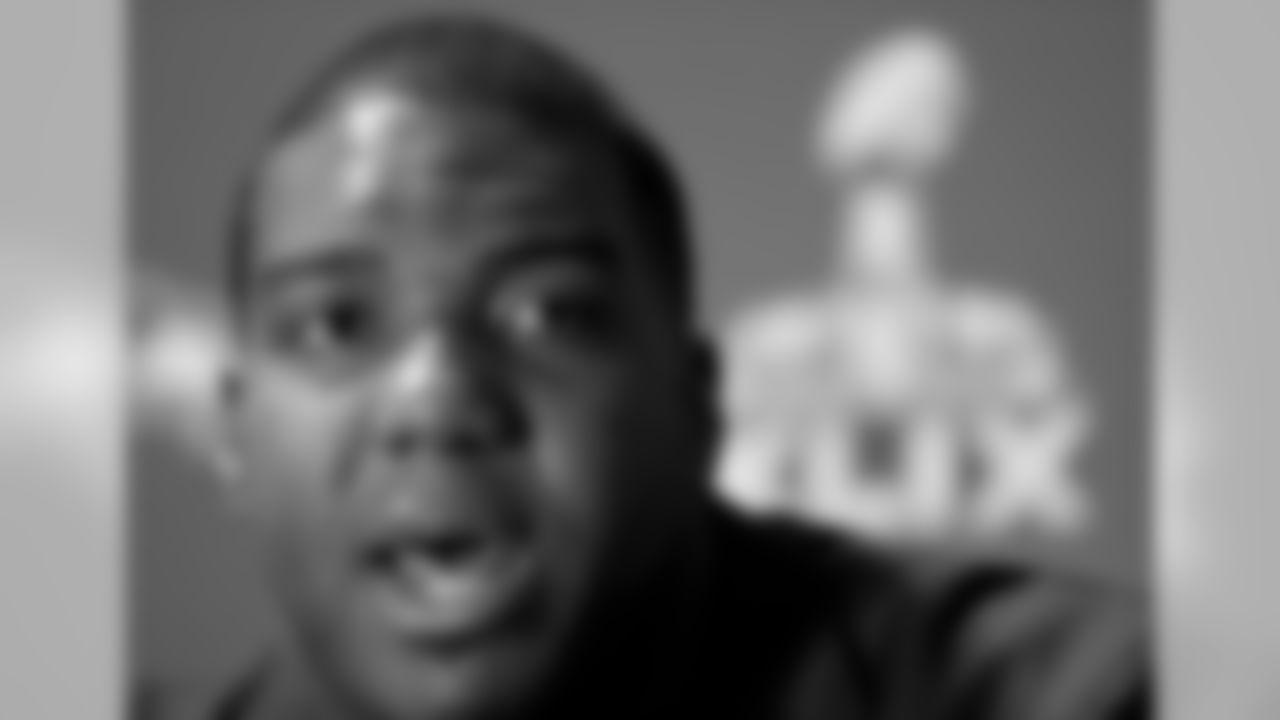
Seattle Seahawks' Russell Okung answers a question at a news conference for NFL Super Bowl XLIX football game Sunday, Jan. 25, 2015, in Phoenix. The Seahawks play the New England Patriots in Super Bowl XLIX on Sunday, Feb. 1, 2015. (AP Photo/David J. Phillip)
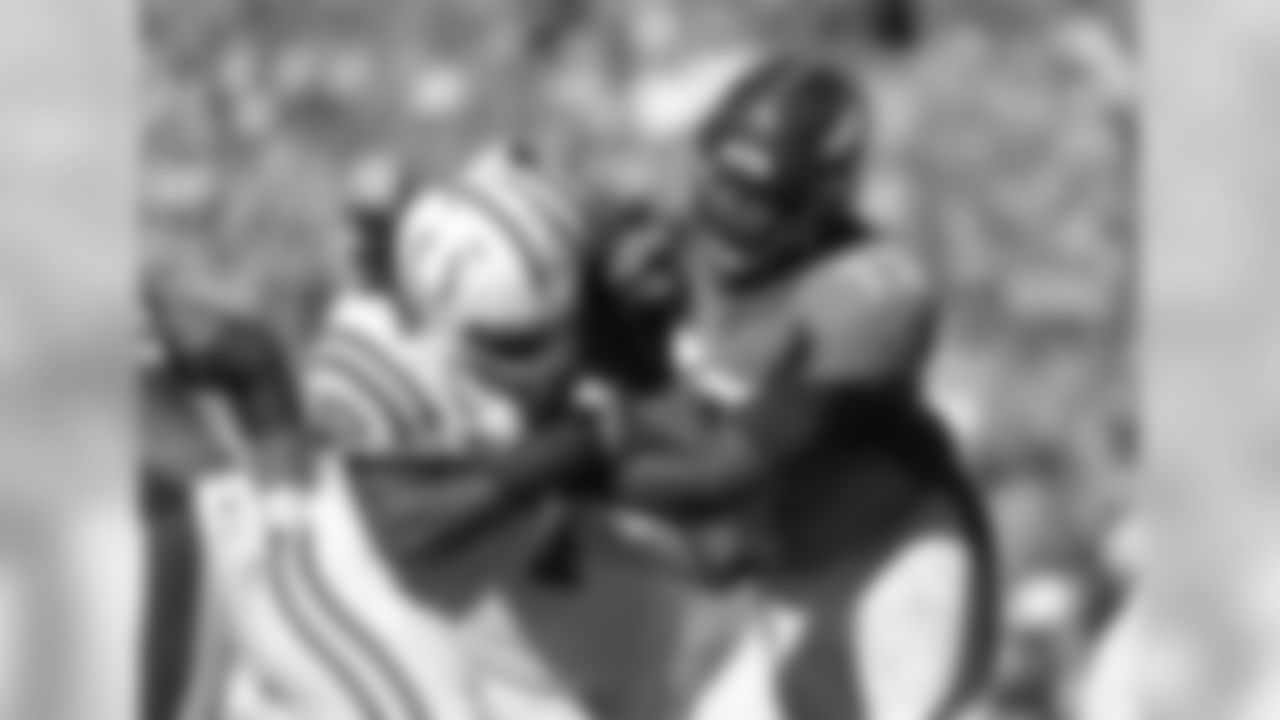
Denver Broncos offensive lineman Russell Okung (73) blocks during an NFL game against the Indianapolis Colts on Sunday, Sept. 18, 2016, in Denver, Co. The Broncos won the game, 34-20. (Greg Trott via AP)

Denver Broncos tackle Russell Okung (73) watches play against the Jacksonville Jaguars during an NFL football game Dec.4, 2016 in Jacksonville, Fla. Denver won 20 - 10. (Al Messerschmidt via AP)

Los Angeles Chargers offensive tackle Russell Okung sets up to block in action against the Denver Broncos during an NFL football game on Sunday, Oct. 22, 2017 in Carson, Calif. The Chargers defeated the Broncos 21-0. (G. Newman Lowrance via AP)

FILE - In this Jan. 27, 2015, file photo, Seattle Seahawks' Russell Okung speaks to the media during the NFL Super Bowl Media Day in Phoenix. Okung is often asked to go at it alone as a left tackle, so it should be no surprise that when it comes to negotiating his next contract he's doing it without an agent. (AP Photo/Gregory Payan, File)

Seattle Seahawks tackle Russell Okung (76) during an NFL game against the Dallas Cowboys on Sunday, Oct. 12, 2014 in Seattle. The Cowboys won, 30-23. (AP Photo/Ric Tapia)

Seattle Seahawks offensive tackle Russell Okung (76) looks up from the field during a NFL football game against the Cleveland Browns, Sunday, December 20, 2015 in Seattle. The Seahawks won the game 30-13. (Paul Jasienski via AP)

Seattle Seahawks tackle Russell Okung (76) is seen in action during an NFL football game against the St. Louis Rams at CenturyLink Field on Sunday, December 28, 2014 in Seattle, Washington. Seattle won 20-6. (AP Photo/Aaron M. Sprecher)

FILE - In this Sunday, Jan. 10, 2016 file photo, Seattle Seahawks tackle Russell Okung (76) sits on the bench during the second half of an NFL wild-card football game against the Minnesota Vikings in Minneapolis. John Elway bolstered both his offensive line and his already strong reputation as one of the NFL's best general managers Thursday, March 17, 2016 by luring former Seattle Seahawks left tackle Russell Okung to the Denver Broncos.(AP Photo/Nam Y. Huh, File)

Seattle Seahawks tackle Russell Okung (76) lines up in a two-point stance during an NFL game against the Carolina Panthers at CenturyLink Field on October 18, 2015. The Panthers defeated the Seahawks 27-23. (Kevin Terrell via AP)










